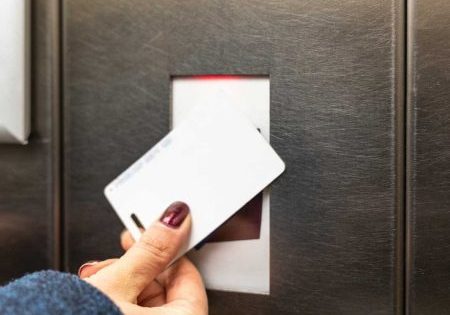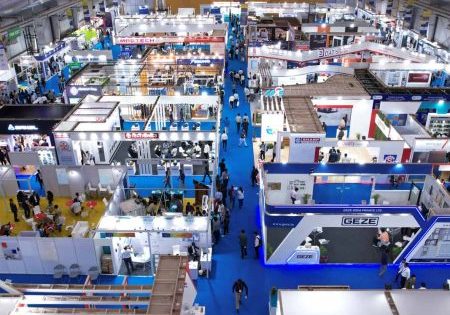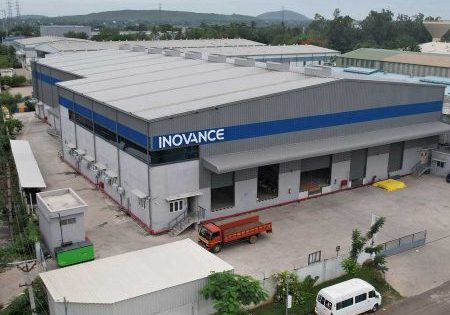The hidden legal risk of misrepresenting product origin in India equals unpacking misleading origin claims and false foreign affiliations.
by B.S. Kumaraswamy
In today’s globalized economy, “Italian Brand” is not just a label — it is a symbol of artisanship, heritage and premium quality. But what happens when that label is reduced to mere marketing — detached from reality and deliberately used to mislead?
The Growing Concern: A Deceptive Practice
Across sectors in India — from garments and fashion accessories to machinery and home decor and, above all, elevators! — there is a growing trend of companies misrepresenting the country of origin of their products, falsely branding them as foreign-made to tap into consumer bias and premium pricing. While some firms may import only select components and assemble or manufacture the rest domestically, they still declare their offerings as “entirely imported.” This practice is not just unethical or misleading — it is punishable under Indian law.
The Problem: Misrepresentation of Origin and Ownership
Several Indian entities routinely:
- Import only select parts while promoting the final product as fully imported, or use foreign brand names or logos while having no actual corporate or ownership affiliation with the overseas entity.
- Some companies go beyond implying foreign origin through packaging — they outright claim to be subsidiaries or franchisees of foreign firms, adopting names like “……. (UK) Pvt. Ltd.” or stating they are “Authorized 100% Subsidiaries of XYZ Corp.” even when no such affiliation exists. This deception preys on consumer perceptions of quality, legal standards and international pedigree.
- Such practices distort competition, mislead consumers and erode the credibility of genuinely compliant businesses operating transparently under India’s regulatory frameworks.
- This article explores the legal consequences of such misrepresentation, real case precedents and what manufacturers, distributors and consumers must know to stay on the right side of the law.
The Practice: Misleading “Imported” Claims
It is increasingly common in sectors like electronics, fashion, consumer goods and elevator components for companies to:
- Import only certain parts
- Manufacture or assemble major portions in India
- As global consumers become more discerning, labels such as “100% Imported” or “A Subsidiary of XYZ Italy Ltd.” carry significant weight. These phrases inspire trust, justify premium pricing and shape brand identity. But what happens when they are nothing more than marketing mirages?
In India, an increasing number of firms are:
- Importing only select components but labeling their product as “fully imported”
- Falsely asserting they are wholly owned subsidiaries or authorized branches of foreign companies with no legitimate affiliation to back their claims. These deceptive practices not only exploit consumer perceptions — they are also punishable under Indian law.
- Such representation is a false trade description, and under Indian law, it attracts both regulatory penalties and criminal liability, especially when the intention is to mislead consumers.
Why It Matters
- Consumer Deception: Customers pay a premium expecting imported quality and standards.
- Market Distortion: Honest Indian manufacturers that correctly label products face unfair competition.
- Legal Exposure: Distributors, retailers and exporters may unknowingly become party to misrepresented goods. Besides metrology penalties, such conduct may invite liabilities under:
- The Consumer Protection Act for unfair trade
- Passing off remedies under trademark law
- Potential criminal proceedings under IPC 420 if intent to cheat is proven.
The Way Forward: Transparency and Enforcement
- Stricter Inspections: Legal Metrology departments across states should increase random inspections of goods labeled as “imported” or using foreign trademarks.
- Consumer Education: Buyers must be encouraged to ask for country-of-origin documents and manufacturer declarations.
- Industry Integrity: Brands must self-regulate, avoid suggestive branding and clearly state manufacturing origin — India has world-class capabilities; it should not be hidden.
What the Law Says
- Legal Metrology Act, 2009
- Section 18 mandates that pre-packaged commodities must bear accurate declarations, including country-of-origin and manufacturer/importer details.
- Section 36 penalizes non-compliance with any declaration requirement, including false country-of-origin claims.
- Penalty: ₹25,000 for first offense, up to ₹1,00,000- and one-year imprisonment for subsequent offenses.
- Legal Metrology (Packaged Commodities) Rules, 2011
- Rule 6(1)(a): Mandatory to mention the name and address of the manufacturer/importer, and where relevant, the country of origin.
- Misleading claims about import origin violate both labeling requirements and consumer protection standards.
- Section 41 – False Return or Information
- Any person who knowingly provides false information to a Legal Metrology officer can be fined up to ₹5,000 for the first offense and face criminal action on repeat violation.
Real Case Example
Alvaro Castagnino Ties (Jammu,2024):
Fined ₹75,000 for labeling domestically made neckties as “imported” using foreign-sounding names This case proves that even implied foreign origin through branding or omission of truthful details can trigger enforcement.
Passing-Off and Affiliate Claims:
Though no direct case exists involving false foreign subsidiary claims, Indian courts routinely penalize similar misrepresentations under passing-off law (Satyam Info way v. Sify net, 2004)
In Satyam Info way, the Supreme Court recognized that even domain names implying affiliation can confuse and mislead consumers.
What About Partial Imports?
If a product includes some imported components but is assembled or manufactured in India, claiming “fully imported” is a material misrepresentation. It misleads consumers about the value, quality and origin, and therefore falls under:
- Unfair Trade Practices under Consumer Protection Act, 2019
- Cheating under Section 420 of IPC (if fraudulent intention is proven)
Smt. Rubi vs. State of U.P. (2015)
The Supreme Court clarified that even reckless or negligent misrepresentation may amount to fraud when the objective is to induce reliance or gain commercial advantage.
Advisory for Manufacturers and Importers
DOs:
- Clearly state if a product is “assembled in India using imported components” and be clear on which component is imported and which component is localized in India.
- Maintain verifiable documentation of imports, customs clearances and part-level origin
- Ensure labeling matches factual origin (including on outer packaging and sales materials)
DON’Ts:
- Do not use “100% Imported” if even part of the product is manufactured domestically.
- Do not imply foreign ownership or affiliation without legally valid proof (such as franchise or Memorandum of Understanding [MoU]).
How Consumers and Authorities Can Act
| Concern | Who to Approach | Legal Basis |
| False origin or importer claim | Legal Metrology Department | Sec. 18, 36 LM Act |
| Misleading ads/branding | Consumer Forum | CPA 2019 |
| Fraudulent misrepresentation | Police or Court | IPC Sec. 420 |
| Use of foreign affiliation falsely | Registrar of Companies/Civil Court | Trademark & Passing Off |
Penalties and Enforcement
| Misrepresentation Type | Relevant Law | Penalties |
| “100% Imported”, but made/assembled domestically | LM Act Sections 18, 36, 41; Rules 6 | ₹25K–₹1L + 1 year jail; ₹5K + imprisonment |
| False claim of foreign subsidiary or parentage | Consumer Act, Trademark/Passing Off | Fines, injunctions, damages |
| If dishonest intent is proven | IPC Section 420 | punishment, imprisonment |
Why False Affiliate Claims Are Risky
- Using a foreign company’s name or claiming “100% subsidiary” can mislead customers into believing in quality assurance, global support or corporate backing.
- Courts in passing-off suits (e.g., Amul vs. Maruti Yadav, ITC vs. Britannia) uphold that misrepresentation causes confusion and damages goodwill, even without proven fraud.
- The doctrine of reverse passing off (e.g., Bristol Conservatories principle) also prevents claiming third-party affiliation that does not exist.
Advisories
For Companies:
- Clarify origin and affiliate status: Use labels like “Assembled in India using imported components” and only claim foreign subsidiary status if legally valid.
- Offer Documentation: Use letter head of your own company instead of using the logo of a foreign brand and mentioning the name of the foreign manufacturer on the top of letterhead as “XYZ India.”
- Maintain documentation: Keep import certificates, freight documents, franchise/MoU agreements and board approvals for subsidiaries.
For Regulators and Consumers:
- Initiate Legal Metrology inspections based on packaging and label claims.
- Consumers should ask for proof of import origin or foreign affiliation before purchasing.
- Enforcement agencies should treat false affiliate claims similarly to origin misrepresentation, considering the potential for passing-off remedies. Such practices distort competition, mislead consumers and erode the credibility of genuinely compliant businesses operating transparently under India’s regulatory frameworks.
Conclusion: Honesty in Origin is a Legal Obligation
Misrepresenting the origin of a product — whether in part or whole — is not just a marketing exaggeration; it is a legal offense with tangible consequences. As Indian manufacturing gains global credibility, there is no excuse for disguising local products as foreign goods.
Companies must be transparent, accurate and compliant. Misleading declarations may offer short-term gain, but they risk regulatory scrutiny, consumer backlash and criminal exposure eventually. As India’s Make in India campaign celebrates domestic quality, the other side is the rising surge of deceptive origin claims. Falsely claiming foreign manufacture — or pretending to be a foreign subsidiary — is no clever marketing. It is a legal and ethical violation, risking consumer trust and fair competition — it is a matter of national integrity. Mislabeling a product as “Foreign Made” when it is manufactured locally in India is not a clever marketing trick — it is a fraud. It is time regulators, businesses and consumers held such practices accountable. Let us hold these companies to account — because buyers deserve clarity, not confusion.
Disclaimer: The opinions expressed are the author’s own and do not reflect the views of their employer or affiliated organizations. This article is intended solely for general informational and educational purposes for the industry and should not be construed as professional or legal advice.
Get more of Elevator World. Sign up for our free e-newsletter.









